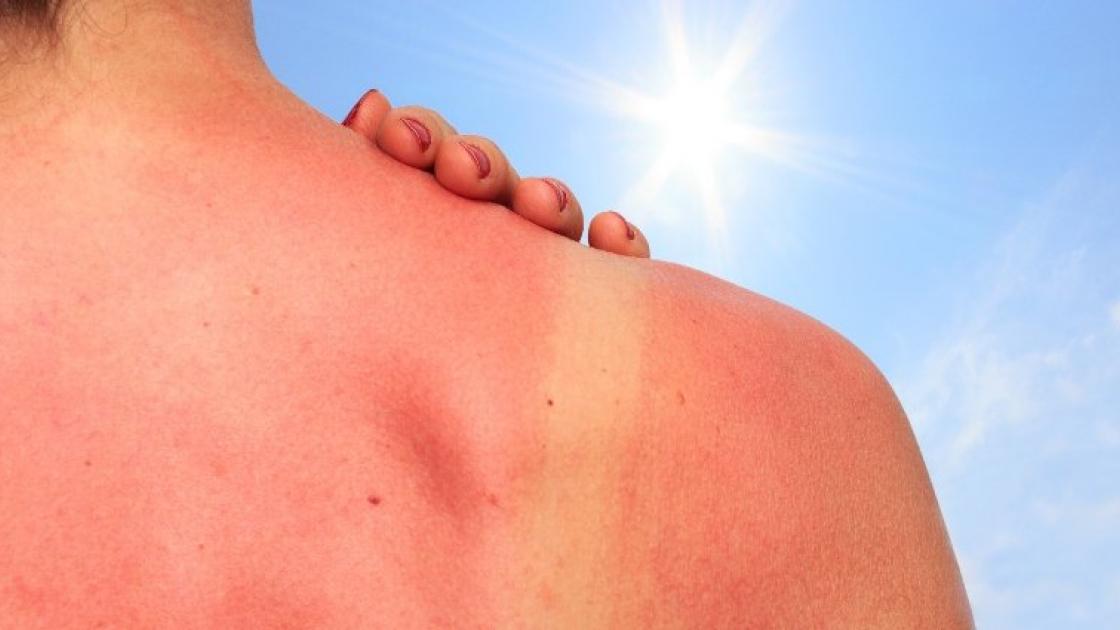
5 things to do (and not to do) when you have a sunburn
Do you think sunburn is nothing more than a temporary inconvenience? Not quite. According to The Skin Cancer Foundation, having just five sunburns in your lifetime doubles your risk of developing a potentially deadly type of skin cancer called melanoma.
At SIU Medicine, our dermatology team is committed to helping people take better care of their skin and find meaningful and effective solutions to their skin care needs. Fortunately, most of our patients understand that avoiding sunburn is important for short-term and long-term skin health. But we get a lot of questions about what to do when and if sunburn does develop. Keep reading to learn more about this common skin condition what you should do (and not do) if you experience one.
What is a sunburn exactly?
Most of us know what sunburn feels like. Red or pink skin that's warm to the touch are telltale signs we've spent too much time outside without adequate sun protection.
Additional signs and symptoms of a sunburn, which vary depending on how severe the burn is, can include pain, swelling, tenderness, blistering, painful and gritty eyes, fever, nausea, fatigue, and headache. After a few days as the sunburn heals, you may also notice the top damaged layer of your skin peeling away.
These symptoms develop due to an inflammatory reaction in the outer layers of your skin to ultraviolet (UV) radiation from the sun. Melanin, a substance in your skin that gives it its color, darkens in response to UV radiation exposure as a way to protect your sun-exposed skin. This self-protective process results in a tan, which is actually a type of skin damage, too! But too much sun can surpass even melanin's ability to protect your skin, and therefore lead to a burn.
5 things to do and not do when you have a sunburn
Sunburns can be painful, and severe burns may even lead to issues such as blisters that are at increased risk of infection. To help yourself heal up properly after getting burned from the sun, keep these helpful steps in mind:
- DO soothe your pain by taking short cool showers or baths. When you get out, do not rub your skin roughly. Instead, gently pat it with a soft towel. You may also use a cool compress to provide relief; just make sure never to put ice directly on your sunburned skin. If you're safe to use nonsteroidal anti-inflammatory drugs (NSAIDs), you may also consider taking some to ease inflammation.
- DO use a dermatologist-approved moisturizer on your skin. We recommend applying moisturizer immediately after leaving your shower and ideally after patting your skin down until it's only a bit damp. This helps trap in moisture and ease dryness. Aloe vera is generally safe for mild burns, whereas petroleum or oil-based lotions are not recommended because these can trap heat against the skin.
- DO stay out of the sun. While your skin is healing, avoid sun exposure. You may also find that wearing loose and soft clothing is the most comfortable to wear, but if you go into the sun look for tightly-woven clothing that doesn't allow light through.
- DO drink plenty of water! Your body will draw fluids to your skin when it suffers a sunburn or other type of damage. Unless you're regularly replenishing your fluids, you could become dehydrated, which can delay skin healing and lead to other uncomfortable side effects. So, drink up!
- If you have blisters, do NOT pop them. Call your doctor if you have multiple or large blisters or notice signs or symptoms of infection, such as pus or red streaks.
Need help staying skin safe this summer?
SIU Medicine is your home to innovative and effective skin care solutions that can be customized for anyone in your family. Contact us today at 217-545-8000 to learn more about how we can help you have a skin-safe summer.




